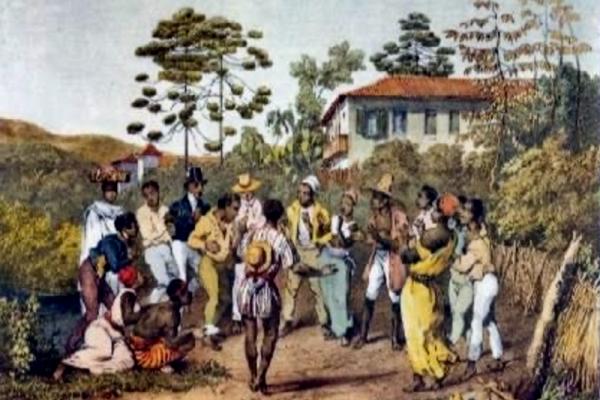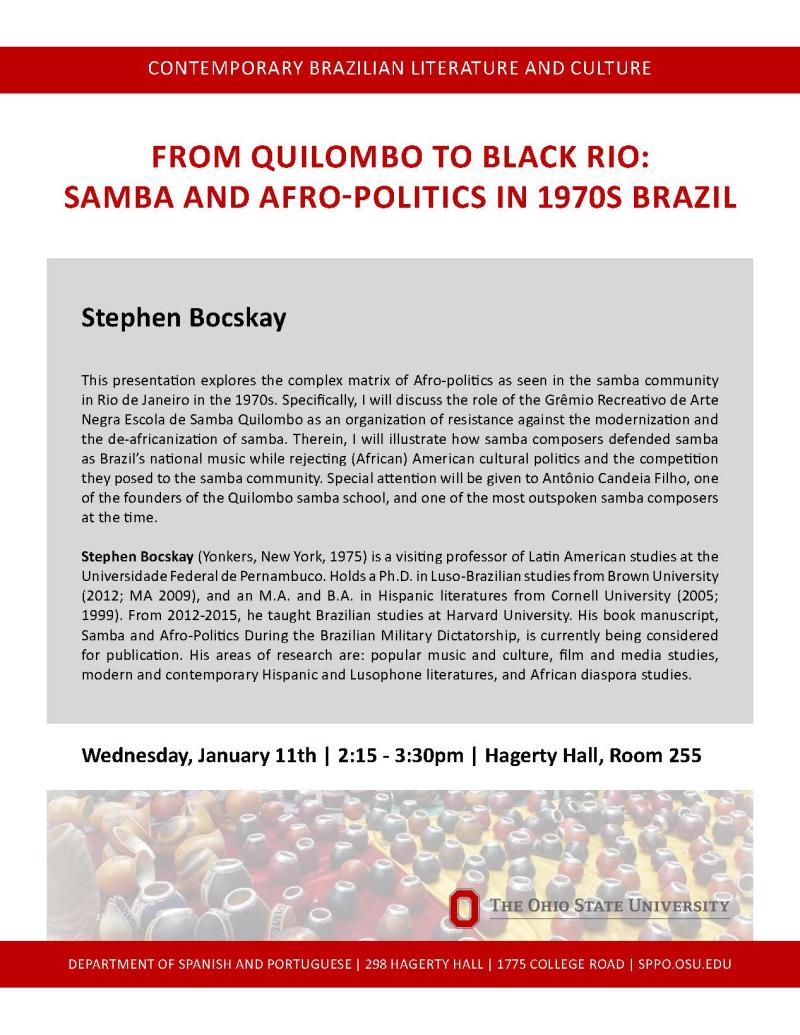
Stephen Bocskay
This presentation explores the complex matrix of Afro-politics as seen in the samba community in Rio de Janeiro in the 1970s. Specifically, I will discuss the role of the Grêmio Recreativo de Arte Negra Escola de Samba Quilombo as an organization of resistance against the modernization and the de-africanization of samba. Therein, I will illustrate how samba composers defended samba as Brazil’s national music while rejecting (African) American cultural politics and the competition they posed to the samba community. Special attention will be given to Antônio Candeia Filho, one of the founders of the Quilombo samba school, and one of the most outspoken samba composers at the time.
Stephen Bocskay (Yonkers, New York, 1975) is a visiting professor of Latin American studies at the Universidade Federal de Pernambuco. Holds a Ph.D. in Luso-Brazilian studies from Brown University (2012; MA 2009), and an M.A. and B.A. in Hispanic literatures from Cornell University (2005; 1999). From 2012-2015, he taught Brazilian studies at Harvard University. His book manuscript, Samba and Afro-Politics During the Brazilian Military Dictatorship, is currently being considered for publication. His areas of research are: popular music and culture, film and media studies, modern and contemporary Hispanic and Lusophone literatures, and African diaspora studies.
Stephen Bocskay, From Quilombo to Black Rio: Samba & Afro-Politics in 1970s Brazil [PDF]

